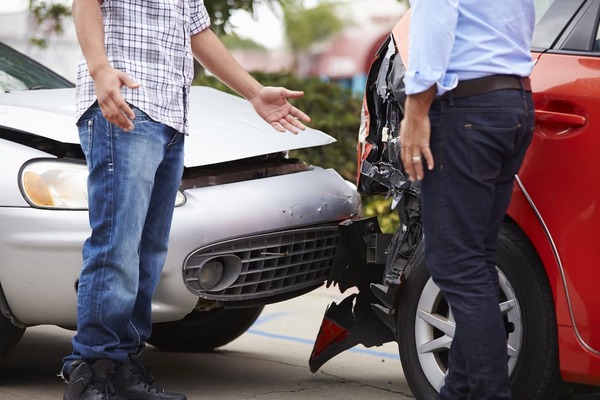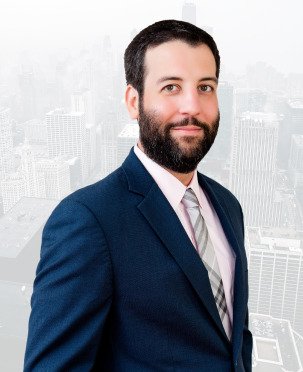
Knowing what to do following a car accident can be daunting, especially in Florida. Understandably, you want to know who will pay for your injuries and other damages. But what happens if both drivers are at fault in an accident? Because Florida is a no-fault state, many people might not need to worry about the answer to this question.
Your first source of recovery is your own Personal Injury Protection (PIP) insurance coverage. However, you might still receive some compensation from a third party if your claim qualifies to pursue a third-party liability claim.
In this article, our Tallahassee auto accident lawyers explain Florida’s negligence law, hypothetical examples of shared liability, and answers to some frequently asked questions.
For a free consultation, please call (850) 601-1111 or send us an online message today.
Florida’s No-Fault Laws and Threshold to Pursue a Personal Injury Claim
Florida is a “no-fault” state when it comes to car accident claims. Following an accident, each driver’s insurance will cover their respective losses, regardless of who was at fault. However, there’s a threshold that, if met, allows a driver to pursue a claim beyond Personal Injury Protection (PIP).
A driver may step outside of the no-fault system and pursue a personal injury lawsuit against the at-fault driver if the accident results in any of the following:
- Significant and permanent loss of a vital bodily function,
- Permanent injury,
- Disfigurement, or
- Death.
Exceeding a certain amount of damages may also allow you to pursue a third-party fault-based claim. Speaking with a Florida car accident lawyer who can review your claim and verify your legal options is essential.
Shared liability in car accidents is more common than you might think. Florida follows the rule of pure comparative negligence. This legal concept assigns each driver involved in the accident a percentage of fault. Consequently, their recovery from a lawsuit will be reduced by their share of responsibility.
At-Fault Accident Examples
Let’s consider some examples to understand how comparative negligence works in Florida.
If you’re 40% at fault for an accident and suffer damages of $100,000, you can only recover 60% of your damages or $60,000. Next, consider a 70/30 at-fault accident where you’re 70% responsible for an accident that caused $50,000 in damages. In this situation, you can recover 30% of your damages from the other party, amounting to $15,000.
Another common scenario might be a 50/50 at-fault accident. In accidents where you and the other driver share fault equally, you’ll each receive 50% of your damages. If you have $100,000 total damages, the maximum you could recover is $50,000.
Being 50% at fault in some states will bar you from recovery. However, Florida is a pure comparative negligence state. Even if you’re 90% at fault, you will still receive 10%. Florida’s law doesn’t bar you from recovery unless you’re 100% at fault.
FAQ
Shared liability can raise several questions regarding insurance, claims, and proving negligence. Here, we answer a few of the most common questions about shared fault in Florida car accidents.
Will My Insurance Go Up in a 50/50 Claim?
Yes, your insurance rates might increase in a 50/50 claim. Even though the fault is shared equally, making a claim can indicate to your insurer that you’re a higher risk to insure. However, the degree of increase can vary based on your insurance provider, driving history, policy, and more.
Are Parking Lot Accidents Always 50/50?
No, parking lot accidents are not automatically 50/50 in terms of fault. Like any other accident, liability in a parking lot collision is determined by evaluating each driver’s actions. It’s a common misconception that these accidents automatically result in a 50/50 liability split.
How Do I Prove Comparative Negligence in Florida?
To prove comparative negligence in Florida, gathering comprehensive evidence is crucial. Evidence could include police reports, CCTV footage, accident scene photographs, witness statements, repair estimates, medical records, and more. An experienced attorney can help collect this evidence and build a strong case against the other driver.
Contact Nonni Homola Today
If you have questions about what happens if both drivers are at fault in an accident, contact the skilled legal team at Nonni Homola. Navigating the complex landscape of Florida’s auto accident laws can be overwhelming.
Our Florida car accident lawyers are seasoned professionals who are well-versed in Florida’s negligence laws. We will protect your rights and fight for the compensation you’re entitled to receive.
With more than 40 years of combined experience, we know what it takes to build a solid case for shared liability car accidents. Contact us online or call (850) 601-1111 today for a free consultation, and let us guide you through this challenging process.



